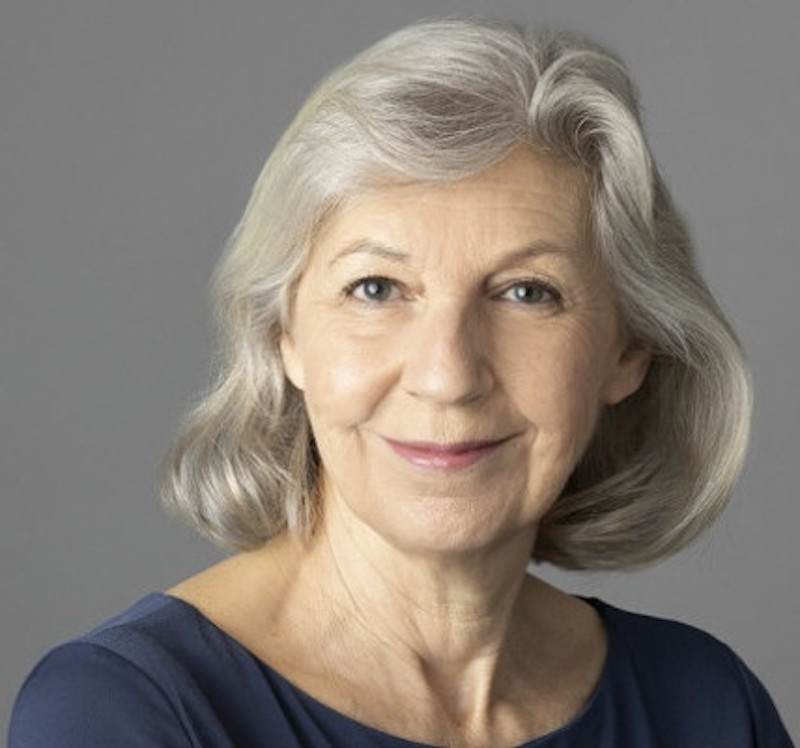
Introduction: To many in travel retail and associated sectors, Sarah Branquinho needs no introduction. Well known and much respected, Sarah is a voice not just for women and diversity, but for the industry in general. Juggling marriage, motherhood, career, trade association and charity work, she is known for her leadership qualities, her energy and her sensitivity.
A self-confessed perfectionist, Sarah talks with The Moodie Davitt Report’s Colleen Morgan. She touches on her upbringing and love of languages, her mission to champion not only women and diversity in the industry but also ongoing problems with defending the industry, and her life with Danish husband and TFWA President Erik Juul-Mortensen.
Let’s start with your childhood, Sarah, and your aspirations as a teenager.
I was born near Leicester and both my parents were teachers. Earliest memories centre on Whitstable, where we moved when I was three. My mother went back to work teaching reception class, and I went with her. I can still remember rough ‘snooze mats’, my wicker pushchair.
When I was four, my parents decided that if they wanted to get on in life they needed to work overseas. They were offered teaching posts in Lima (Peru) but that seemed too far away from my grandparents, and in Tripoli (Libya). September 1961 saw us driving across Europe in a red dormobile, which the Arabs would later name the Red Devil.
We drove on a gravel track over the Grand St Bernard Pass, slept in rice fields in the Po Valley, visited Sienna and on to Naples to board the Citta di Tunisia to set sail for Tripoli. The vehicle before ours was dropped in the sea. Ours, fortunately, was hoisted without mishap.
My parents taught at the British Council School in Tripoli, which I also attended, in a class full of children with different nationalities, which is maybe where my love of languages started. I have many vivid memories of our house, the desert, camels, and of flying back to England twice on my own with BOAC, the start of my love affair with British Airways.
We returned to England in 1963 with Punch, the mongrel we had acquired in Tripoli. He lived to a ripe old age and died when I was at university.
What prompted your decision to study Modern European Studies at Loughborough University?
My parents never lost their love of travel. We would go camping in mainland Europe for much of the summer holiday each year and, having no siblings, I mixed with the other children and continued attuning my ear to other languages.
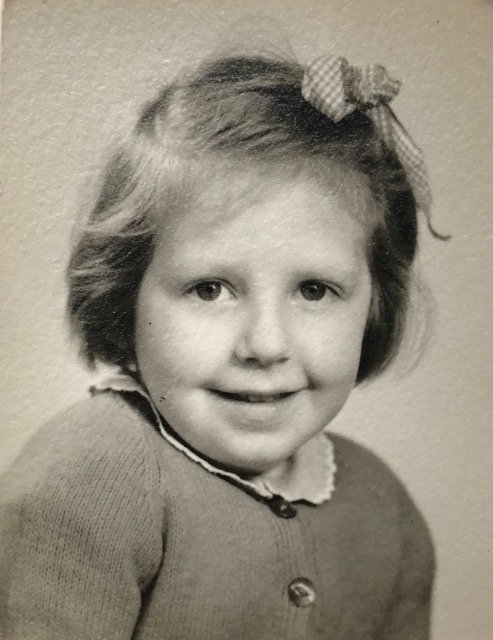
I learned French and German at senior school and when I was 16 had the opportunity to go to school in Germany for three months. No mobile phones of course then, my parents put me on the ferry at Harwich and I arrived in Biedenkopf an der Lahn after docking at the Hook of Holland and making three train changes. In subsequent school and university holidays, I worked in France (Ministry of Post and Telecommunications) and in a home for the elderly in a small village in North Germany.
I chose Loughborough University because I’ve always loved talking to people and wanted living language at the heart of my degree. The course comprised Economics, Politics, French and German. One module included a comparative study of East and West Germany. My lecturer suggested I go and live and study in the German Democratic Republic (GDR) for a year and I ended up at the Humboldt University in East Berlin.
Much of the media focus then was on brutality on the border between the East and the West. Yes, there was repression, indoctrination, never knowing who was reporting on you, and personal lack of choice from career to food to clothing; but everyone had a job and medical care, access to the arts was encouraged and inexpensive. I made lifelong friends.
It taught me not to take everything at face value, but to explore and decide for myself. I was weirdly disappointed not to be approached on any political level while I was there but, several years afterwards, that same tutor was arrested as a ‘sympathiser’ and Stasi informer. I have yet to go and look up my own Stasi record, but it will surely include that I used to call the UK for hours on end from a call box using one shilling coins. Fed in succession, the coins dropped out and were reused, giving me endless free time to chat with home.
In the intervening years, through work and family I’ve learned Spanish (quite proficient now, thanks to my five-year-old granddaughter’s corrections), a respectable smattering of Italian and Portuguese, but no Danish!
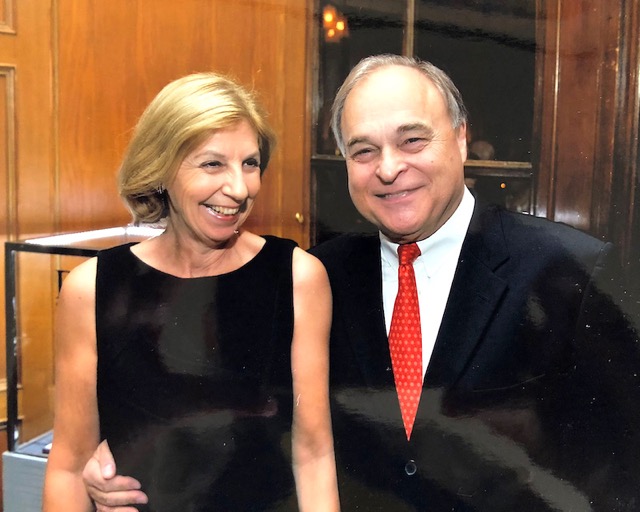
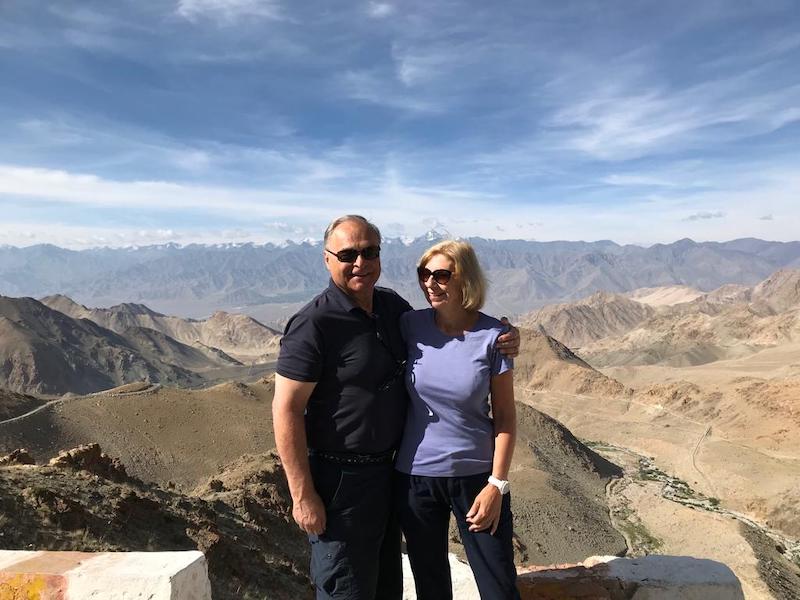
What was your first career move? You were drawn early to the drinks industry, I believe.
I have no idea why I wanted to join a whisky company, but I did. Whisky companies at that time were not very open to taking women on in sales positions, just in PR, so after a few rejections I joined Drinks International in advertising sales, as a means of generating an opportunity to get into the drinks industry.
During that time, and subsequently with one of the first duty free titles, I travelled across Europe visiting vineyards and distilleries, which is how I first met Erik, then working for Danish Distillers. He refused to take a page of advertising space, then bought the back cover from my male boss a few months later. I got my revenge by marrying him (Erik) 14 years later. By then I knew him well, through the Tax Free World Association (TFWA) where I had a commercial role in the fledgling start-up and where he served on the Management Committee from day one.
“I was the only woman, and the youngest person in the room, but if what I was saying made sense, was well argued and I was confident and persuasive, then everyone listened and neither my gender nor my age mattered”
It was thanks to my role in launching TFWA that I started to develop an incredible network across brands and retail operators as I criss-crossed the world, selling the concept of a by-the-trade-for-the-trade event. The first TFWA event was held in Nice in September 1985, just two weeks after the birth of my first child, Sherin. She was too young to fly so I drove there from the UK with Sherin and my mum. Any mother will appreciate the complexities that arose breastfeeding a baby while running a stressful and demanding event. It was the hottest September in Nice for years and the lipsticks and chocolates on the stands were melting; and I was wilting.
I stayed with TFWA as Commercial Director, launching the Asia Pacific event too in Singapore, until 1995 when Barry Gibson, then Commercial Director at BAA, asked me to take on the role of Secretary General of the European Travel Research Foundation. The Foundation was sponsored by 30 industry giants to commission the research that we hoped would convince the EU to keep intra-EU duty free. Barry always said that I interviewed him for the job and not the other way round.
I was appointed and found myself working with a board of 30 men, all senior executives in their own companies. In many ways, I relished that power. The only woman, and the youngest person in the room, but if what I was saying made sense, was well argued and I was confident and persuasive, then everyone listened and neither my gender nor my age mattered.
It was at that stage that I met Frank O’Connell. All that I learned about External Affairs was thanks to Frank. Like me, he was supported in his wider industry role by his company, ARI, and still today, if I am not sure of a course of action, I go to Frank for the wise counsel that he has always shared. He is one of the people I most admire in the industry and Erik and I consider him to be one of our closest friends.
In 1998, BAA decided to establish its own retail business, World Duty Free, and I was invited by Barry’s successor, Brian Collie, to join the new team while still managing the research and additionally running the ‘keep duty free’ consumer campaign for the industry in Europe. It was a typically thoughtful gesture, which gave me stability and a future.
We eventually lost the fight to keep intra-EU duty free by one vote – the Danish vote, and that’s a whole other story – so I found myself working as Business Relations and External Affairs Manager for BAA and its retail arm, World Duty Free.
When BAA sold WDF, I opted to move with the more fast-paced retail business rather than stay with BAA. The rest is history. WDF passed through its various transformations to become part of Dufry, whose CEO Julián Díaz was one of the members of the European Travel Research Foundation Board back in 1995. Life comes full circle. Both Mark Riches at WDF and Julián Díaz at Dufry believed strongly in supporting the industry through the trade associations, so my work with them became a big part of my working life.
How did you morph from your career in External Affairs to becoming a champion of women in the industry, and diversity and inclusion?
Dufry’s senior leadership team was overwhelmingly male dominated, and I could sense the frustration of some of my female colleagues – at all levels – both at the way things were but also their inability to change things. I talked to Julián about it and we agreed that we would set up a group of women from different disciplines and levels within the company to look at the real or perceived barriers to women reaching the top.
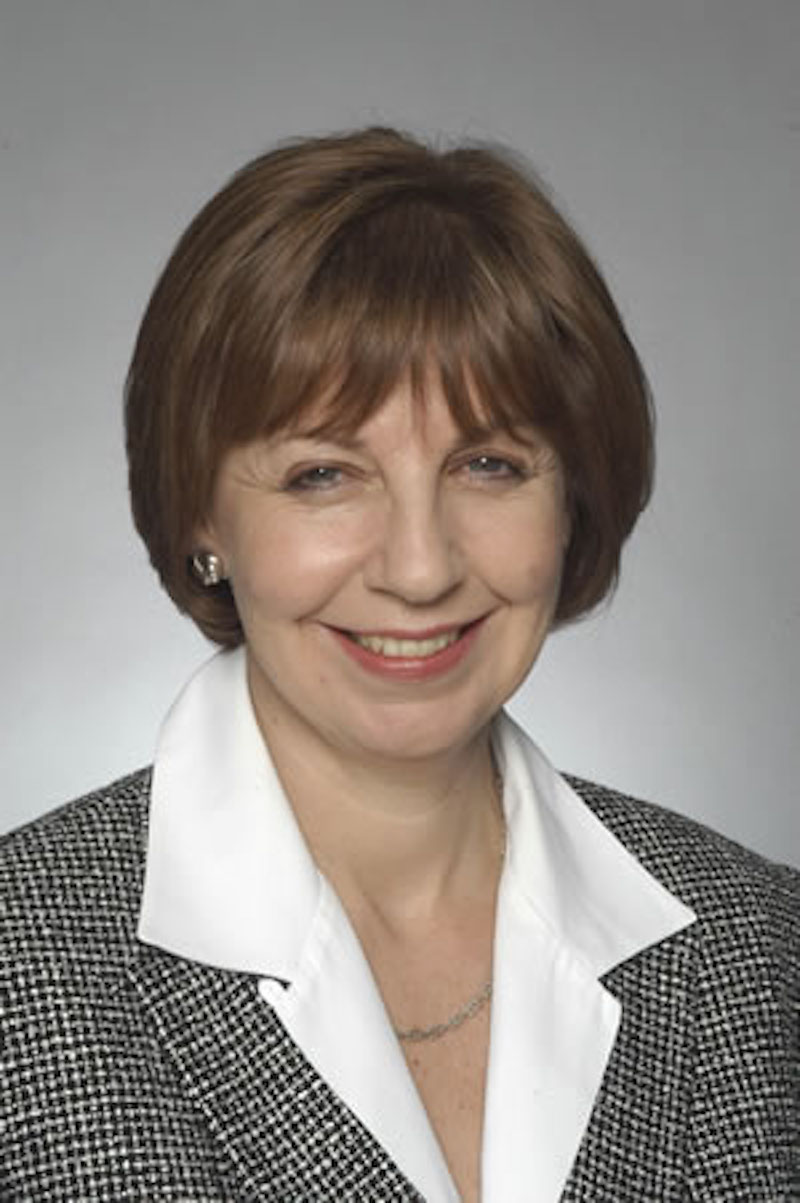
At Dufry’s first senior leadership conference that I attended, less than 10% (of attendees) were women. ‘Women@Dufry’ had a speaking slot at that event and when we explained the challenges we faced it was an eye-opener for some of our male colleagues, who simply hadn’t recognised that there might even be a problem.
That, and my work with Women in Travel Retail and Lotus Flower Trust, were a real catalyst for my interest in helping women to progress with careers and to balance work and family life if that is what they chose to do.
Being appointed Dufry’s first Global Chief Diversity and Inclusion Officer was a huge honour and has been one of the most fascinating and rewarding roles in my career. Two years on, I can see the impact that the focus on diversity and inclusion is having on the business, and more importantly on individuals. We are all guilty of non-inclusive behaviour and of unconscious bias, mostly unintentionally. Giving people the opportunity and the confidence to express how that kind of behaviour affects them, putting a spotlight on it and saying it’s not acceptable, has really made a difference.
There’s still a long way to go, but my successor will be taking the new combined company on that journey, while I continue to support Dufry in an External Affairs role.
Looking back over your career, how has the travel retail industry changed?
This is a simply amazing industry and I have been privileged to meet and work with some extraordinarily talented people. It’s an industry which has become more professional and focused on delivering experiences as well as value, and I’m confident it has a bright future.
On a more personal level, some of the true pioneers are no longer in the industry and that spirit can’t be replicated. Growth has meant that travel retail has become more corporate and less personal. People used to come into our industry and stay in it, taking their accumulated knowledge from one job to the next. Now that’s less so. The industry benefits from people bringing their experience from roles in different channels and markets, but it seems to me a pity that in some cases, duty free is a 12 or 24-month ‘rite of passage’ on the road to the next role. The camaraderie and trust that grew up between (often competing) companies and people working in them is not as strong as it used to be, and I think that’s a pity.
What is your view on diversity and what still needs to change?
Firstly, diversity is indivisible from inclusion. You can have women in very senior positions, who still feel excluded, not treated as equals.
The lack of women in senior management roles remains a challenge and will be a challenge until there is more acceptance from companies that they need to help facilitate career paths for women, or others who have a primary care function. Part time and job sharing are still rare in our industry yet have been proven to work in others.
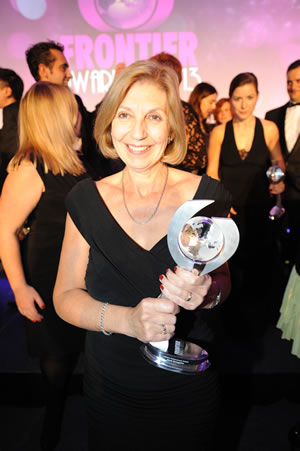
Generalisation is fatal. That said, women tend to be less mobile (in an industry which is global) and tend to progress within their area of expertise (HR, supply chain, marketing), while men seem to get far more opportunities to work in different roles and functions across their companies, thus preparing them for more senior roles.
And we women are sometimes our own worst enemies. We don’t apply for a job unless we think we have 80% of the skills required for that role. Men are more confident in applying and ‘blagging it’, more confident of their ability to learn on the job.
But diversity is a very wide concept. It’s not just about gender. It’s also about your background, the culture that you grew up in, your ethnicity, age, education, religion, appearance, disability, sexual orientation… and much more.
Where can female executives like yourself make their mark?
There are some extraordinary examples of women at the top in our industry, and these women are role models for others who are still trying to work their way up.
It’s about giving other women the confidence to look further ahead; to think where they want to be, assess what the steps will be to get there and then have the courage to go to their line manager or their HR team to see how they can get on that path.
I hope that some of the fabulous women who have shared their journeys on the recent series of WiTR+ webinars led by Gerry Munday have been an inspiration to other women.
As Duty Free World Council President, what is your message to the industry, especially considering the focus on illicit trade and the tobacco sector? Do you think industry bodies are well enough supported?
The industry associations receive some fantastic support from a core group of companies. We are indebted to them for their financial support, but also for the expertise they contribute and their generosity in allowing people on their staff – like me – to serve on the committees and lead these associations. I am proud to have worked for Dufry, an amazing company which has supported me throughout in my industry roles, and grateful that I have been able to do those roles in a non-partisan manner, acting in everyone’s best interests.
However, it is a huge disappointment, and frustration, that other companies don’t contribute at all but expect to benefit from the work that is paid for by others. I wish that a levy could be applied to all companies in the industry; it would make it so much fairer.
The current focus on the illicit trade issue is just one of the many issues that the industry has dealt with over the years, many of them successfully. The illicit trade allegations are not just an attack on the tobacco sector. By implication, they are a reputational slur on our entire industry, which has one of the most regulated and secure supply chains. That is why we are asking every company to sign the declaration of zero tolerance to illicit trade, counterfeit and intellectual property rights. Why would a company not sign it?
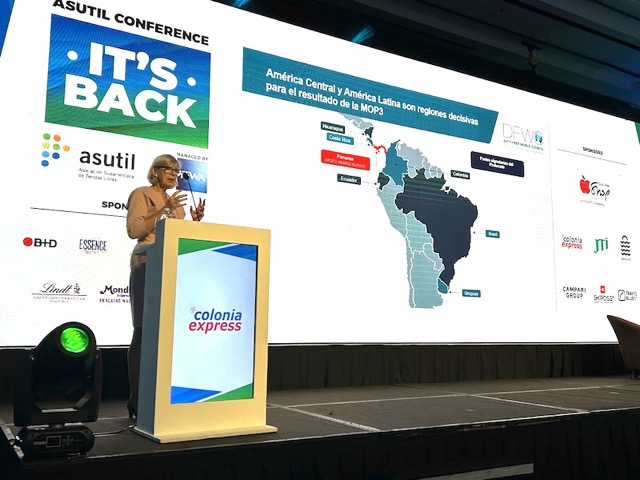
Let’s consider your role in setting up WiTR+ and your charity work, especially the Lotus Flower Trust and your love of India.
Women in Travel Retail was born around 2005 out of a conversation with Ylva Binder (née Persson), who was Global Travel Retail Director at William Grant & Sons. We started wondering what we could do to accelerate career opportunities for women in our industry and to give them a support network when travelling overseas on business.
Over the years it has grown with the help of a dedicated steering group of women across the globe, with the webinars and various networking events in different cities, and has been able to raise significant amounts of money for charity. This year, in recognition of the tremendous support we have received from our male colleagues, we have become WiTR+ and are welcoming all genders to some of our events although we will remain a women’s membership organisation. We are also inviting companies to become corporate partners, a scheme through which they can offer WiTR+ membership to all the women in their GTR departments.
Erik and I got involved with Lotus Flower Trust in 2008. The Trust builds schools and homes in very remote villages in India. India is like Marmite; you love it or hate it. We were both hooked from our first visit to a hovel housing 25 children in the most appalling conditions, with a medical box comprising of used plasters and rusty ointment tubes, and not one toy among them.
There have been some spectacular successes, especially the school for children with disabilities, which was initially built using the proceeds from the sale to World Duty Free of one of 11 bottles of whisky produced in memory of Janet Sheed Roberts, the matriarch of William Grant & Sons, who died at the age of 110.
Children in India are just so eager to get an education and we always urge the girls to make sure they have a career before settling down in the more traditional roles of wife and mother. Lotus Flower Trust is closing now, having completed around 90 schools and homes, with significant contributions over the years from TFWA Care and more recently from Delhi Duty Free; but Erik and I will continue to visit and in fact have been there this summer.
You wear multiple hats, juggling marriage, motherhood, career, trade associations and charities. Do you have time for Sarah?
Last Christmas we played a game called ‘Who in the room…’. One of the questions was ‘who in the room puts work ahead of family?’ and the family all pointed at me. That hurt, not least because there’s some truth in it. I came from a family with a strong work ethic, but with a failed marriage behind me, I was a single mother for a few years and I was not going to fail my children. I was responsible for providing for them and that drove me for many years, even after my marriage to Erik, and now it’s ingrained in me.
There’s not a lot of ‘me’ time; I’m not even sure I want that. Today I am a wife, mother, grandmother, friend, professional, and someone who gives back to society. Those elements are what have made me who I am, and I wouldn’t have it any other way. I truly believe that what you give to each of those parts of your life is given back to you many times over.
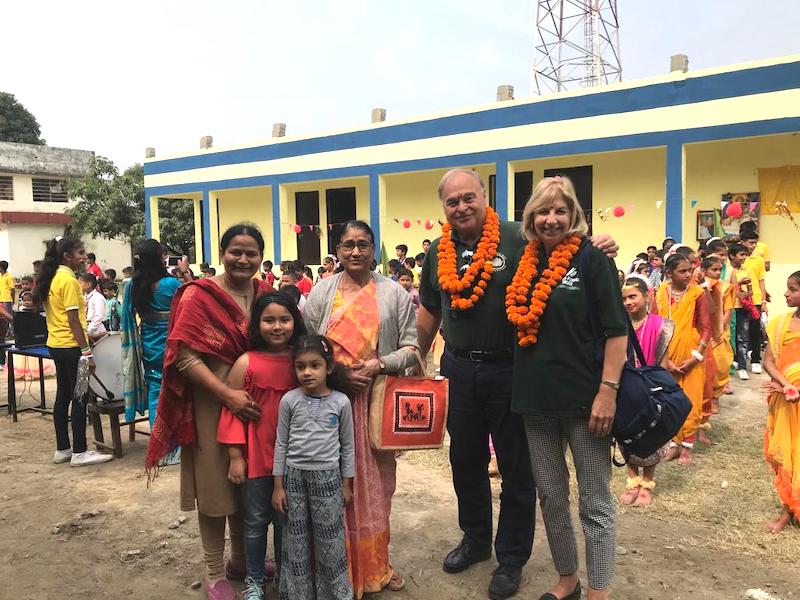
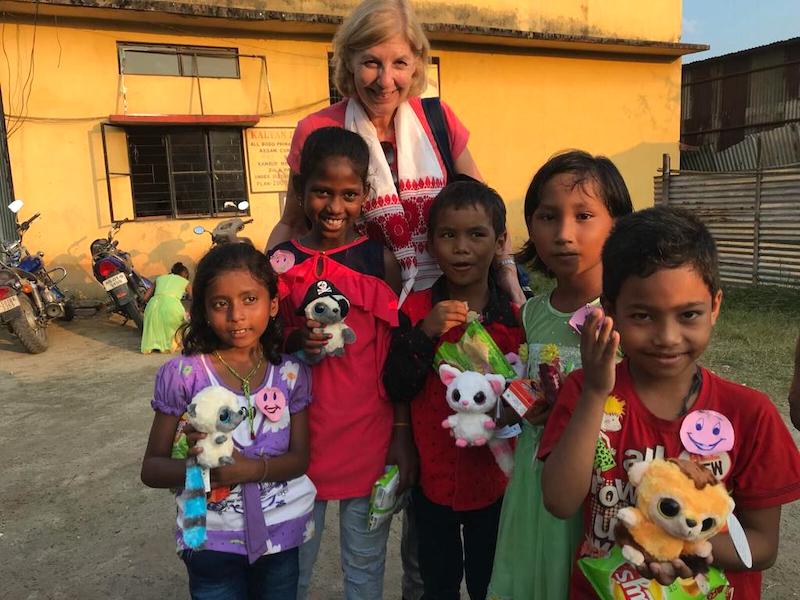
Erik has a son from his previous marriage who lives in Denmark, and we have one grandson there. Our other two children were born before Erik and I married, but he has been a father to them since they were very small.
Our daughter Sherin lives in Madrid, working in Communications, and has two adorable daughters. Giancarlo is back here in the UK from Dubai after looking after some challenging markets in Africa and the Middle East and is a key account manager. As babies, they were both a feature of TFWA meetings, and clearly it entered their bloodstream as both work in the duty free industry today.
I’m incredibly proud of what they have achieved, but even more so of the people they have become. They are both curious, open, genuinely interested in people, and have a natural ability to converse with anyone at any level and from any culture.
As for Erik, he is simply the most amazing and understated person. In many ways we are complete opposites. He is naturally an introvert, although you wouldn’t think so when you see him on stage giving speeches. He’s led the GTR division of a huge company, at the time the second largest after Diageo. Everyone who used to be in his team still greets him affectionately as ‘the boss’.
Concurrently, he led TFWA and even now he does it for pleasure for an honorary fee; there’s no big salary. Family and close friends are at the centre of our lives and we both love travel, which is a good thing as the family are dispersed.
Power couple? Perhaps that is how we are perceived by some, but it’s not what we set out to be. The industry brought us together and it’s been a strong thread throughout our lives. I hope that together we have inspired others to give back to the industry that has given so much to us.
I heard that you considered Queen Victoria a role model… does that still hold, and why?
I’m not sure now that so much has been written about aspects of her life that I don’t admire, but yes, in the sense that she had staying power, and a strong sense of duty.
I would instead see my parents as my role models. They were brought up in very modest circumstances, had their school years interrupted by the Second World War, but together looked for opportunities and seized them. They were intrepid travellers, always open to new experiences. They neither sought nor gained fame or fortune but were at the heart of the village community they lived in and at the heart of our family. They gave me my wings to fly and made my career possible by being so involved in the upbringing of our children.
I am angered by the sense of entitlement that seems so prevalent in society today. I believe that all of us have a responsibility to family, to friends, to our community, our colleagues and to make a real positive difference to people wherever they are.
Looking back over your career, and moving into the next chapter, how would you describe Sarah Branquinho of 2023? (I know many in the industry, including myself, would use the words extraordinary, strong, honest, along with a down-to-earth, humble touch).
Well, those are your words, and I’m touched by them. I am more vulnerable than you think. I’m a natural perfectionist and that can be a pain; to me and to others. I guess I see myself as a person still with a huge amount of energy, someone who wants to keep giving back to the industry – in whatever way I can – but also to others who don’t have the same access to education and opportunity that most of us have had.
I also need to rebalance my life and spend more time with family and friends, and less glued to my laptop and driven by my work. ✈️
This interview is used with the courtesy of The Moodie Davitt Report. Originally published 30th September 2023.
